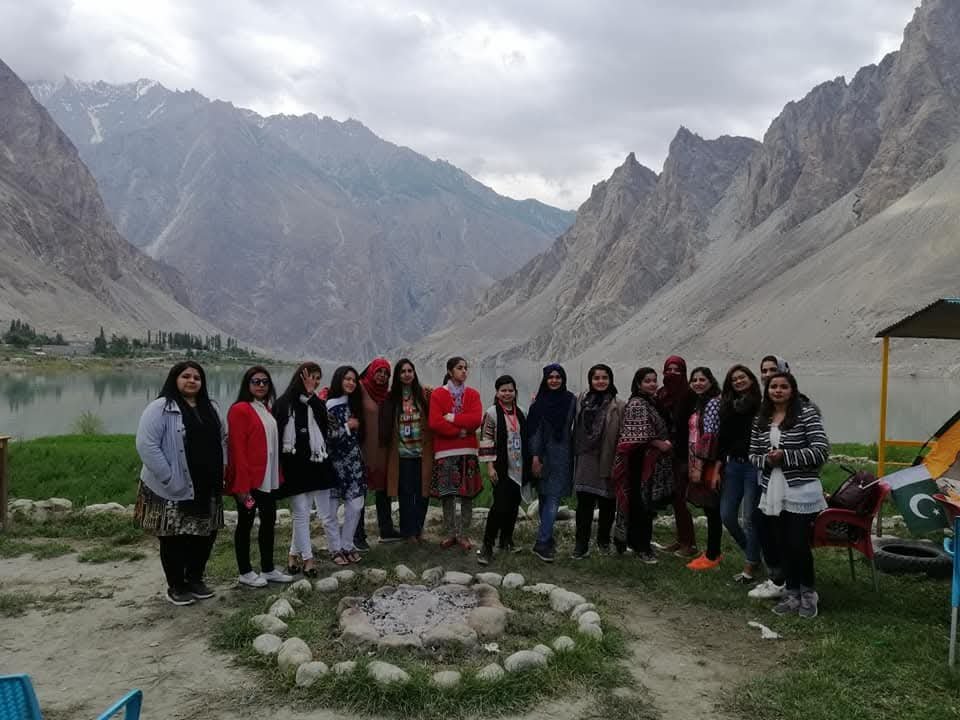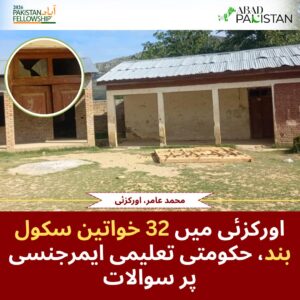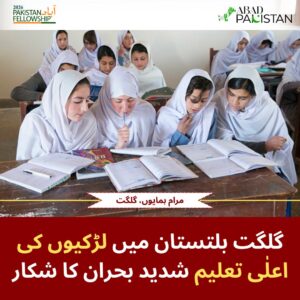(Dr. Sadia Khalid)
The breathtaking valleys and snow-capped peaks of Hunza are home to colourful and vibrant cultures, ethnicities, and languages. Young women are using social media platforms to share their voices and celebrate the richness of their heritage. However, these women are subjected to online harassment, exploitation, and poor digital safety. As these women speak up for their rights and visibility, they often encounter a hostile online environment where cyberbullying is used against them
According to Pakistan’s Ministry of Human Rights, nearly 40% of women in the country have faced online harassment, with 70% of girls under 18 experiencing digital abuse. The consequences can be distressing: 20% of victims are forced to quit social media or abandon their education due to persistent cyberbullying. This alarming trend is sometimes due to the result of random anonymous abuse or bullying, or involves a series of planned attempts by known people.
Marginalized communities—particularly women, transgender individuals, and religious minorities are usually more vulnerable. The harassment these groups experience comes from long-standing systems that control gender, sexuality, and religious belief. In this way, online abuse is not just a tech issue; it’s a significant feminist problem.
Samina, a young content creator from Hunza, shares her experience with this struggle. After starting her TikTok account, she faced backlash not just from strangers but from her own community. “People I’ve known my whole life turned against me overnight,” she remembers, her voice shaking. “They called me names, shamed my family, and made me feel like I had sinned.”
Amina, a 22-year-old from Hunza who runs a page celebrating local traditions, shares her story. “We use social media to showcase our culture, language, and struggles,” she says. “But as soon as we speak up, the trolls come after us. They call us ‘too modern’ or ‘shameless’!”
Roshni, an Ismaili girl who shares posts about her community’s festivals, faces her challenges. “People call us ‘kafirs’ (non-believers) and say we don’t belong in Pakistan,” she explains. “They steal our photos, edit them in an impolite manner, and spread lies. But we won’t back down. This is who we are.”
The abuse these women encounter goes beyond offensive comments; it includes cyberbullying, blackmail, and threats to their safety. Zahra, a college student from Hunza, shares a disturbing experience: “Someone took my pictures and made a fake profile, pretending to be me. They started messaging my friends with inappropriate texts. When I reported it, nothing happened. The police here don’t even know what ‘cybercrime’ means.”
Despite the risks, these women refuse to hold back. Many are learning about digital rights, reporting abuse, and supporting each other. “We started a community club where we share screenshots of harassers and warn one another,” Zahra explains. “If one of us is attacked, we all report the account together. It’s the only way we can protect ourselves.”
Organizations like the Digital Rights Foundation Pakistan, Rozan, Women Media Centre, Bedari, and Aurat Foundation offer legal and psycho-social support, but awareness in remote mountain areas remains low. Zahra emphasizes the need for awareness workshops in these vulnerable communities: “We need awareness and courage. Why should only urban women get protection? Our voices matter too.”
Addressing online harassment needs a comprehensive approach. The government, NGOs, and civil society must implement effective policies that protect digital rights. Right now, many marginalized voices are overlooked, and young girls are particularly vulnerable to harassment.
It’s vital for local governments, particularly in areas like Hunza, to involve youth in discussions about safe spaces and decision-making. As the challenges of online harassment persist, it is important to recognize that this issue is not just a personal struggle for women but a societal problem that demands collective responsibility.
The government needs to improve harassment safeguarding laws in the Prevention of Electronic Crimes Act to protect these young women. In Pakistan, the digital world can be both good and bad for women. It helps them share their stories and culture, but it also makes them vulnerable to online harassment. By supporting each other, promoting digital skills, and implementing the digital safety laws, a safer online space can be established. The journey to digital empowerment is tough, but these women are determined to be heard.





